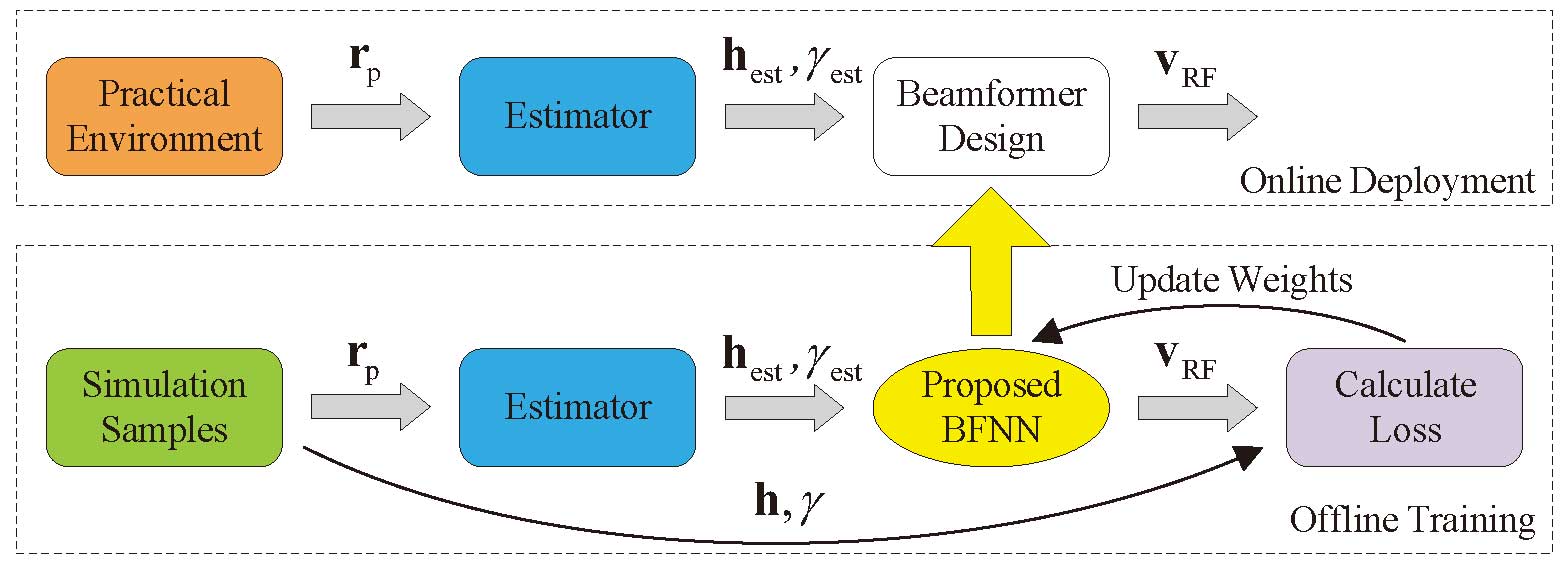Hybrid Beamforming for Millimeter Wave Systems Using the MMSE Criterion
Hybrid analog and digital beamforming (HBF) has recently emerged as an attractive technique for millimeter-wave (mmWave) communication systems. It well balances the demand for sufficient beamforming gains to overcome the propagation loss and the desire to reduce the hardware cost and power consumption. In this paper, the mean square error (MSE) is chosen as the performance metric to characterize the transmission reliability. Using the minimum sum-MSE criterion, we investigate the HBF design for broadband mmWave transmissions. To overcome the difficulty of solving the multi-variable design problem, the alternating minimization method is adopted to optimize the hybrid transmit and receive beamformers alternatively. Specifically, a manifold optimization based HBF algorithm is firstly proposed, which directly handles the constant modulus constraint of the analog component. Its convergence is then proved. To reduce the computational complexity, we then propose a low-complexity general eigenvalue decomposition based HBF algorithm in the narrowband scenario and three algorithms via the eigenvalue decomposition and orthogonal matching pursuit methods in the broadband scenario. A particular innovation in our proposed alternating minimization algorithms is a carefully designed initialization method, which leads to faster convergence. {Furthermore, we extend the sum-MSE based design to that with weighted sum-MSE, which is then connected to the spectral efficiency based design.} Simulation results show that the proposed HBF algorithms achieve significant performance improvement over existing ones, and perform close to full-digital beamforming.
PDF Abstract